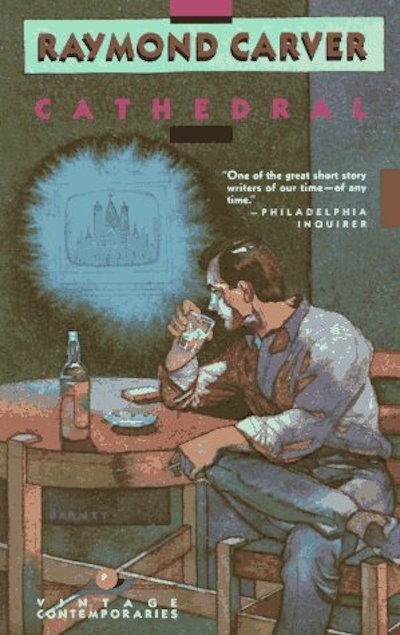
J.P. and I are on the front porch at Frank Martin's drying-out facility. Like the rest of us at Frank Martin's, J.P. is first and foremost a drunk. But he's also a chimney sweep. It's his first time here, and he's scared. I've been here once before.
After living here for two years I have been trying to understand the American psyche by reading its literature. The project is not going well from a results standpoint but there is plenty of interesting stuff to consume.
Cathedral is a collection of twelve short stories from later on in Carver's life, after he was already famous. Each one (except for possibly the title story) is a finely realized but crushingly depressing slice of life featuring alcohol abuse, ill health, old age, poverty and more alcohol abuse.
The back of the book includes this quote from The Boston Globe:
Cathedral contains astonishing achievements, which bespeak a writer expanding his range and intentions
I am not sure I agreeespecially with the choice of using the word "bespeak", you are not impressing anyone, Boston Globe but Carver is a good writer. He has that economical, matter-of-fact way with words that a lot of great American writers haveand a lot of not so great writers attempt. Every paragraph reads like a little poem, and the stories flow into your brain like the scotch everyone is drinking.
But reading twelve dismal stories in a row is a hard ask. Most have the common theme of alienation and self-destruction at their core, often the main character (or couple) starts at self-inflicted rock bottom, has a tiny sliver of good fortune that improves their lot before even that is snatched away in some mundane accident. The characters are vividly and sympathetically rendered, even the really wretched ones which makes their mistakes even harder take.
I am fine with dour, spare writing but I found myself struggling after half a dozen of such tales. Carver certainly found his niche. I suspect he was so popular in the literary circles that use words like "bespeak" because his stories grow out of the bedrock of 1950's Americanawhich might as well be the start of history as far as american culture is concerned but will an sour twist, as if all those people in the Norman Rockwell paintings were hiding crippling addiction and existential desperation behind their ruddy smiles. I imagine writing stories in the uneasy 80's about how things also sucked in your parent's heyday endeared Carver to a generation of literature students.
Carver's technique shines through the dourness but it is a hard slog. The titular story brings the collection to a close with a slightly more hopeful note but by that stage I was as crushed and defeated as most of Carver's characters.